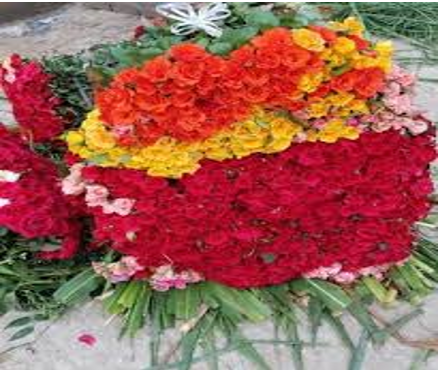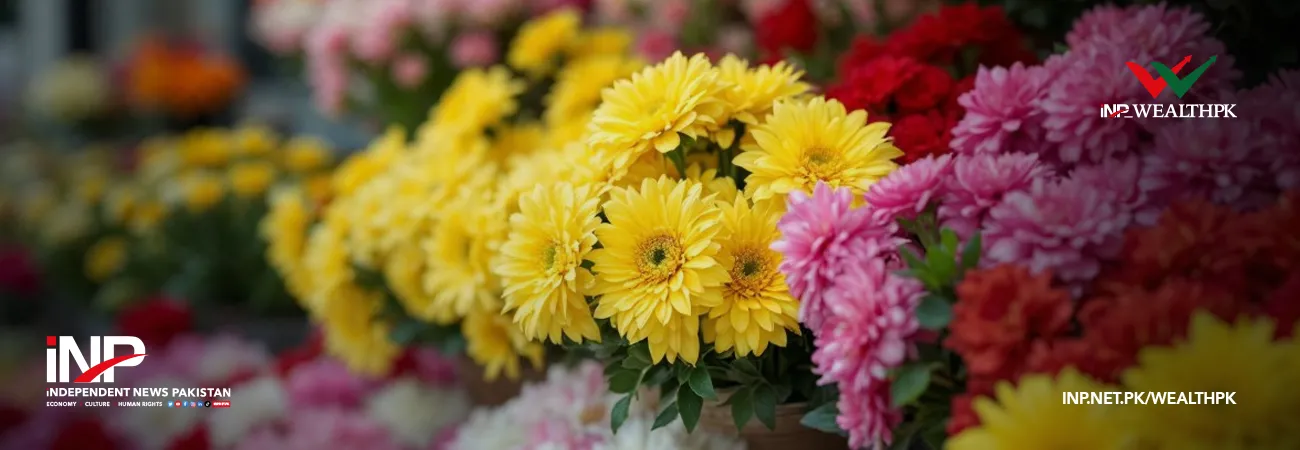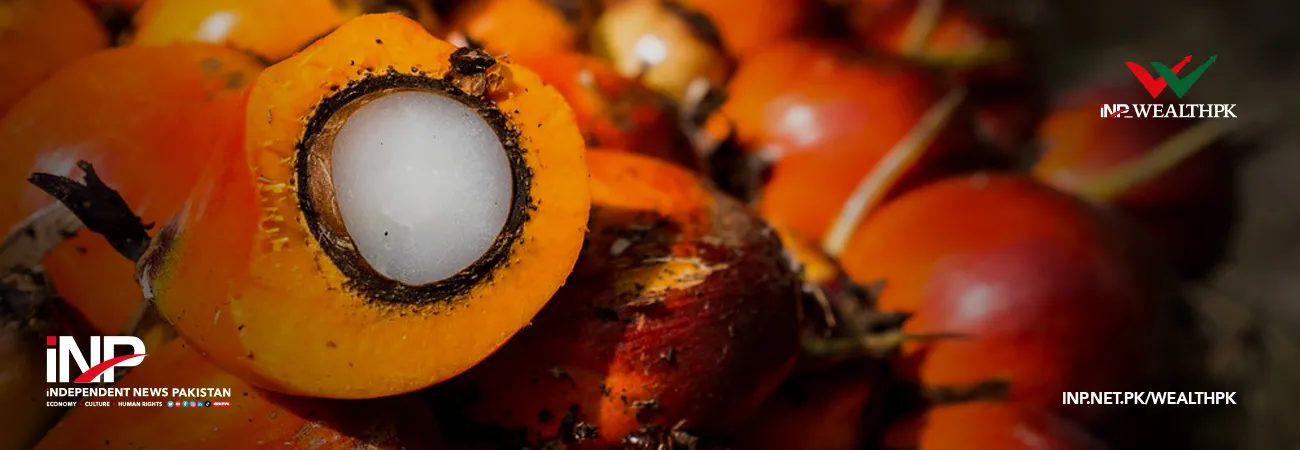INP-WealthPk
Ahmed Khan Malik
The Sindh government has worked out a strategy to give a boost to the floriculture sector in order to create employment opportunities, increase exports and strengthen the national economy, reports WealthPK.

Sindh is a significant producer of various flowers, including roses, carnations, and chrysanthemums. The province's floriculture sector contributes substantially to the provincial economy and food security. However, there is a considerable potential to expand production and improve quality to meet international standards.
The agriculture department figures show that Sindh produces approximately 30% of Pakistan’s total fruits, including mangoes, oranges, and grapes and produces around 25% of Pakistan’s total vegetables, including tomatoes, cucumbers, and melons.

Accumulatively, Sindh’s horticulture and floriculture sector exports are worth around Rs50 billion (approximately USD0.3 billion) annually. “The Sindh Enterprise Development Fund (SEDF) is promoting investment in the floriculture sector by encouraging the establishment of farms for cut flowers and nursery plants under the strategy,” Israr Sheikh, Director Floriculture Wing Sindh, told WealthPK.
This initiative aims to increase value addition and productivity. The Department of Horticulture at the Sindh Agriculture University, Tandojam is offering specialized programs in floriculture under the plan. These programs focus on production, postharvest techniques, storage, processing, and marketing of horticultural crops, including flowers. The department also conducts research to develop new high-yielding varieties and improve cultivation practices, he said.
He pointed out that the World Bank, through the International Development Association (IDA), is also assisting the Sindh government in boosting horticulture production and exports. “The focus is on regulating crops to help small- and medium-sized producers reduce post-harvest damage and loss, thereby enhancing the quality and export potential of horticultural products, including flowers,” he said.
Sheikh told WealthPK that researchers have proposed declaring arid regions in the province as organic zones to promote chemical-free agriculture. “This approach aligns with the ‘five-coloured agriculture’ concept, which emphasizes the cultivation of diverse crops to combat malnutrition and improve health” he pointed out, adding that implementing organic practices could enhance the quality of floriculture products and appeal to the international markets seeking organic produce.
About the challenges facing the floriculture sector in the province, Sheikh noted that despite these initiatives, the sector faces challenges such as inadequate post-harvest handling, lack of modern infrastructure, and the need for skilled workers. Addressing these issues is crucial to fully realizing the sector's potential.
However, he is optimistic that the provincial government is working tirelessly to tackle these challenges. By addressing the existing challenges and leveraging these initiatives, Sindh aims to enhance its floriculture industry, contributing to economic growth and improved livelihoods for its residents, he added.
Credit: INP-WealthPk













